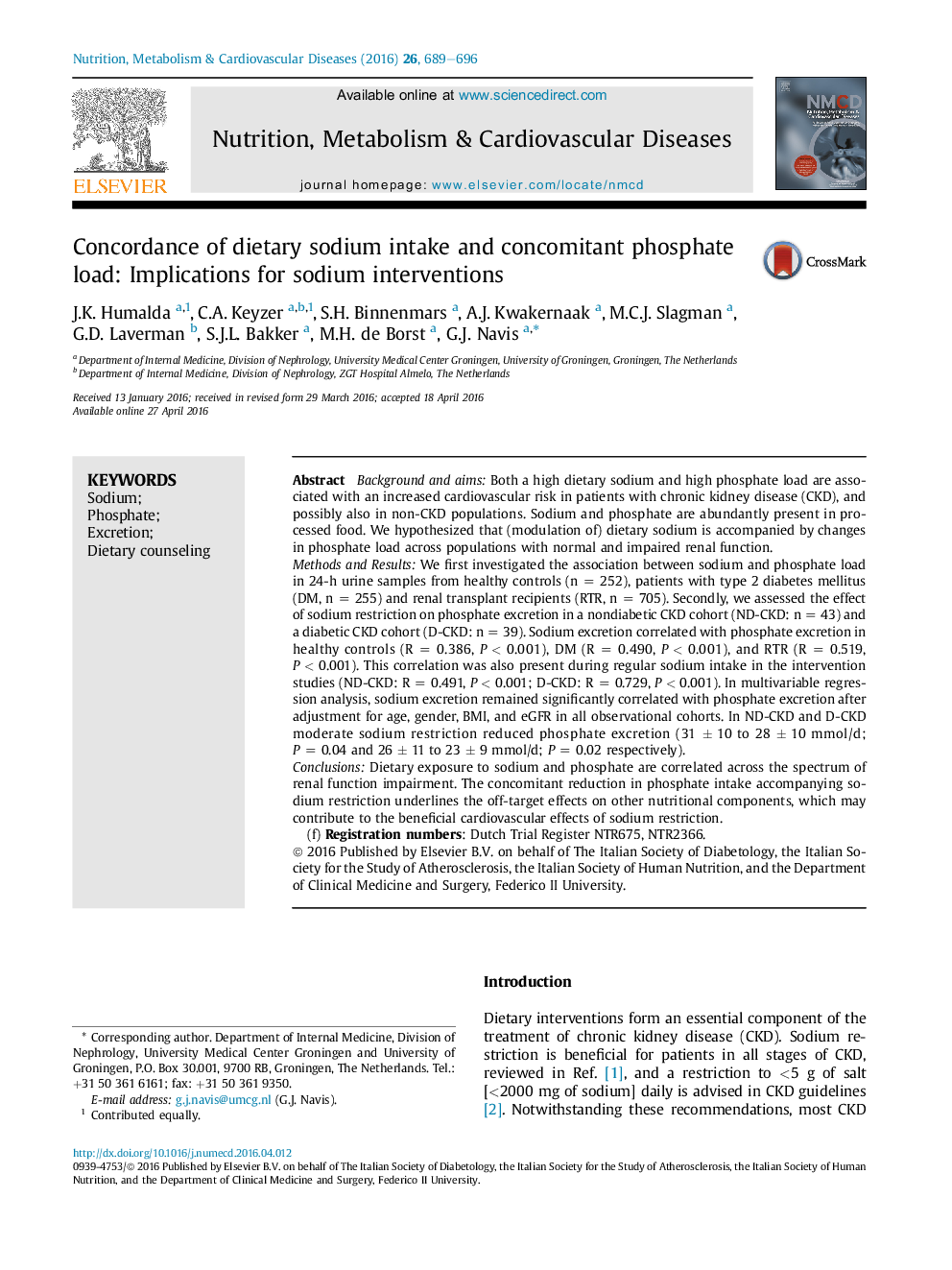| کد مقاله | کد نشریه | سال انتشار | مقاله انگلیسی | نسخه تمام متن |
|---|---|---|---|---|
| 5996410 | 1180664 | 2016 | 8 صفحه PDF | دانلود رایگان |
- A high intake of sodium and phosphorus may be harmful, particularly for CKD patients.
- Sodium and phosphorus are ubiquitously present in additive-rich, processed foods.
- 24-hourly urinary excretion of sodium and phosphorus are strongly correlated across different populations.
- Dietary counseling to reduce sodium intake concomitantly reduces phosphate intake.
- Studies aimed at reducing one food component should assess changes in other nutrients.
Background and aimsBoth a high dietary sodium and high phosphate load are associated with an increased cardiovascular risk in patients with chronic kidney disease (CKD), and possibly also in non-CKD populations. Sodium and phosphate are abundantly present in processed food. We hypothesized that (modulation of) dietary sodium is accompanied by changes in phosphate load across populations with normal and impaired renal function.Methods and ResultsWe first investigated the association between sodium and phosphate load in 24-h urine samples from healthy controls (n = 252), patients with type 2 diabetes mellitus (DM, n = 255) and renal transplant recipients (RTR, n = 705). Secondly, we assessed the effect of sodium restriction on phosphate excretion in a nondiabetic CKD cohort (ND-CKD: n = 43) and a diabetic CKD cohort (D-CKD: n = 39). Sodium excretion correlated with phosphate excretion in healthy controls (R = 0.386, P < 0.001), DM (R = 0.490, P < 0.001), and RTR (R = 0.519, P < 0.001). This correlation was also present during regular sodium intake in the intervention studies (ND-CKD: R = 0.491, P < 0.001; D-CKD: R = 0.729, P < 0.001). In multivariable regression analysis, sodium excretion remained significantly correlated with phosphate excretion after adjustment for age, gender, BMI, and eGFR in all observational cohorts. In ND-CKD and D-CKD moderate sodium restriction reduced phosphate excretion (31 ± 10 to 28 ± 10 mmol/d; P = 0.04 and 26 ± 11 to 23 ± 9 mmol/d; P = 0.02 respectively).ConclusionsDietary exposure to sodium and phosphate are correlated across the spectrum of renal function impairment. The concomitant reduction in phosphate intake accompanying sodium restriction underlines the off-target effects on other nutritional components, which may contribute to the beneficial cardiovascular effects of sodium restriction.(f) Registration numbers: Dutch Trial Register NTR675, NTR2366.
Journal: Nutrition, Metabolism and Cardiovascular Diseases - Volume 26, Issue 8, August 2016, Pages 689-696
